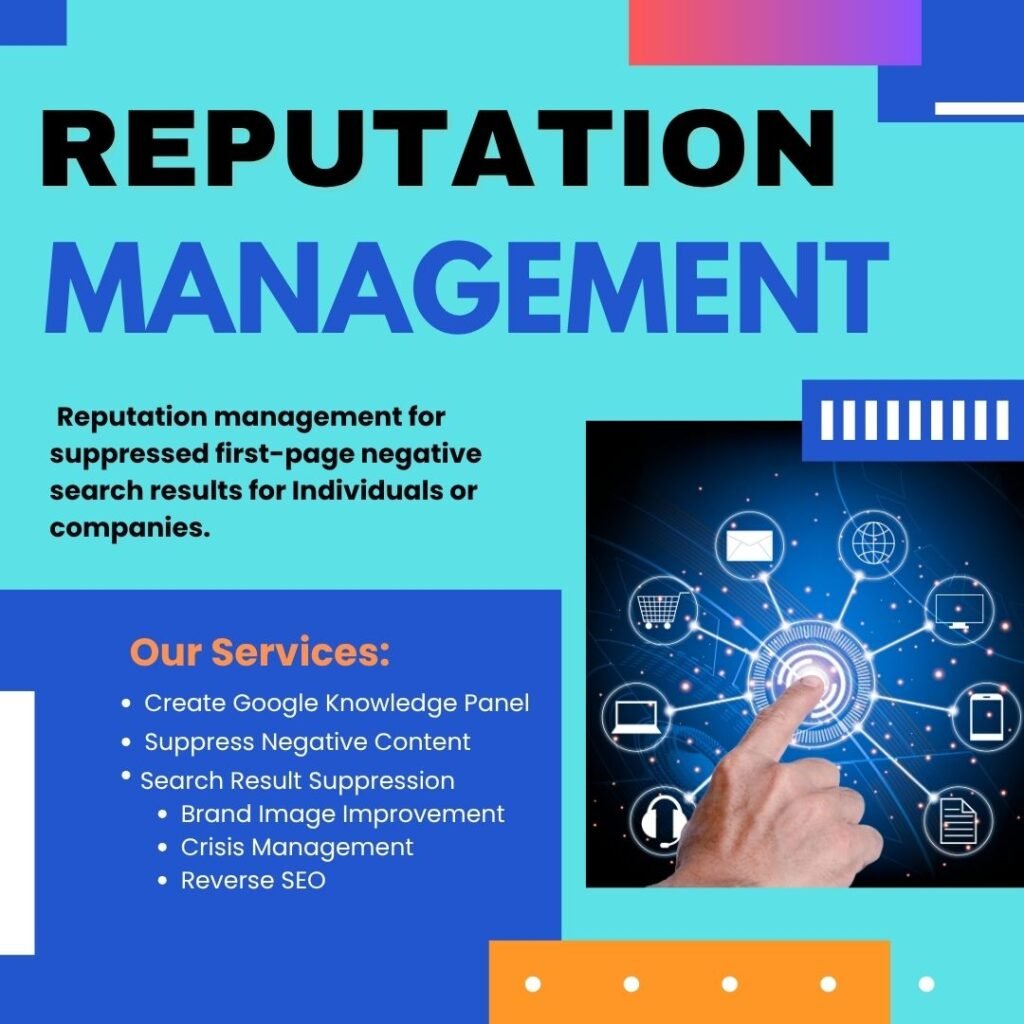Reputation Management involves monitoring, influencing, and improving how a brand, individual, or business is perceived online and offline. It includes a variety of strategies and activities that help shape public perception, build trust, and suppress or resolve negative content.
✅ Core Parts of Reputation Management:
1. Online Presence Monitoring
Monitoring mentions, reviews, social media, blogs, forums, and news.
Tools used: Google Alerts, Brand24, Mention, SEMrush, etc.
2. Review Management
Encouraging positive reviews from customers.
Responding to negative reviews professionally and quickly.
Flagging and removing fake or harmful reviews (when possible).
Platforms: Google, Trustpilot, Yelp, Facebook, BBB, etc.
3. Search Engine Results (SERP) Management
Suppressing negative search results (e.g., bad articles, Reddit posts).
Promoting positive or neutral content to rank higher.
Building strong backlink profiles to trusted, optimized content.
4. Content Creation and SEO
Publishing blogs, press releases, interviews, videos, and social media content.
Using SEO to push positive content up in search results.
Creating optimized branded assets like:
Personal/Company website
Wikidata/Wikipedia (if eligible)
Crunchbase, Medium, YouTube, LinkedIn, etc.
5. Social Media Reputation
Managing brand pages and profiles across all platforms.
Engaging with followers, answering questions, addressing complaints.
Removing or reporting defamatory or fake posts/accounts.
6. Crisis Management
Rapid response to PR disasters or viral negative publicity.
Issuing official statements, press releases, or clarifications.
Collaborating with legal teams if needed for takedowns or defamation cases.
7. Legal Action and Takedown Requests
Filing DMCA or privacy violation complaints.
Contacting webmasters or platforms to remove false/damaging content.
Working with attorneys to pursue legal removals if necessary.
8. Google Knowledge Panel & Entity Optimization
Creating or managing verified knowledge panels.
Optimizing entity data on Google, Wikidata, Crunchbase, etc., to build trust and authority.
9. Local SEO & Google Business Profile (GBP) Management
Optimizing and protecting Google Business Profiles.
Managing GBP reviews, Q&A, and business information.
10. Brand Sentiment Analysis & Reporting
Using analytics tools to track public sentiment trends over time.
Reporting reputation health and measuring the impact of campaigns.
